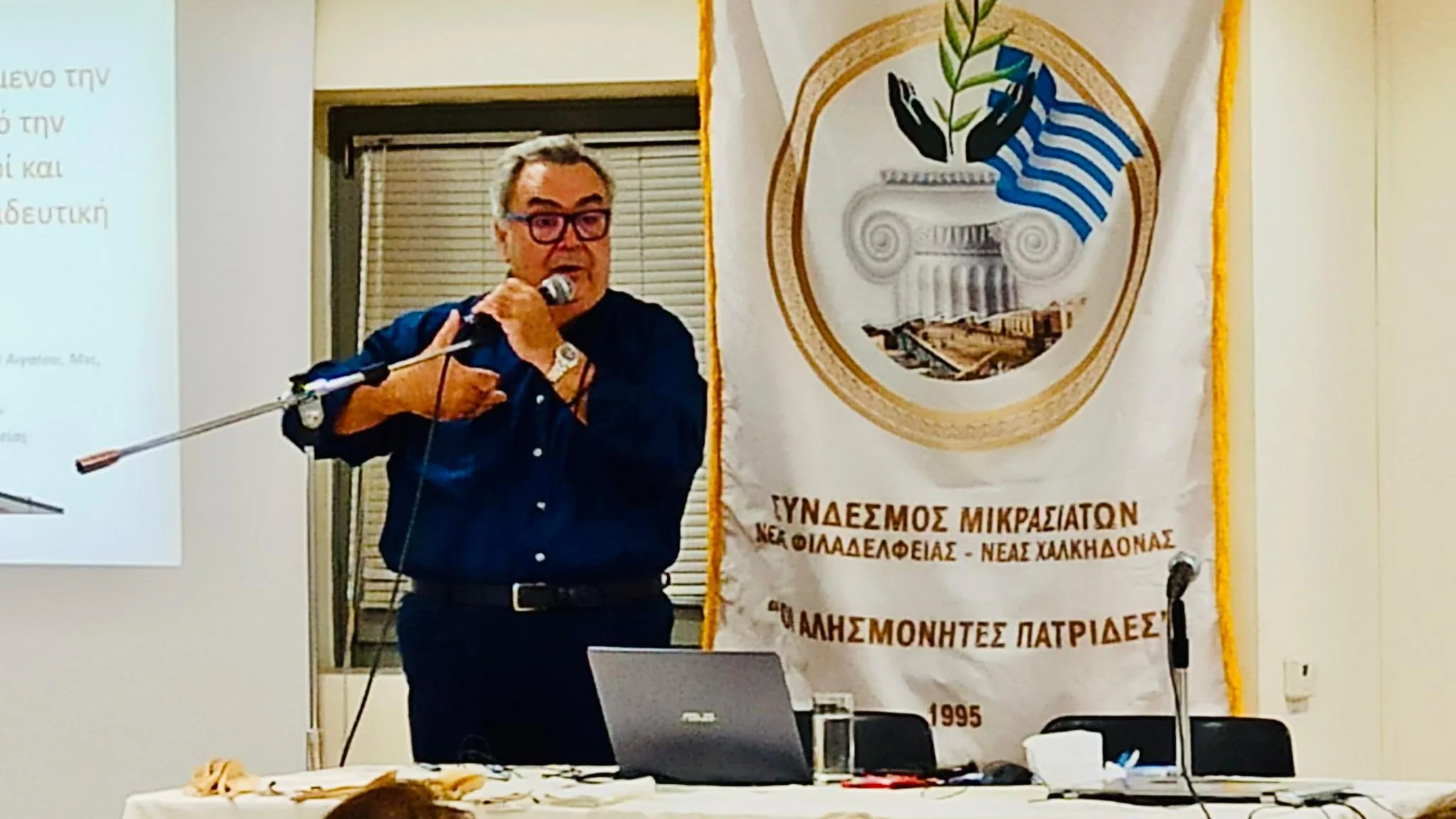By Panagiotis Dalatariof
The Zeibekiko Festival is returning to Australia for the third exciting year. From 3 to 12 October, the festival – under the banner of Ventouris Productions – arrives dynamically and promises the ultimate celebration of Greek traditions. Through dance, music, storytelling and community connection, the Greek spirit will be highlighted once again.
As part of the festival, Dr Christos Theologos, one of the most respected folklorists of Greece, will lead a series of lectures and workshops on the deep roots of the dance traditions of Asia Minor, such as the zeibekiko, aptalikos, karsilamas, Cappadocia, coastal Asia Minor and Constantinople.
In addition, he will conduct special workshops on the traditional dances from the island of Chios. His work highlights the connection between dance, Byzantine tradition and religious folklore, illuminating the timeless cultural memory that is inherent in movement and ritual.
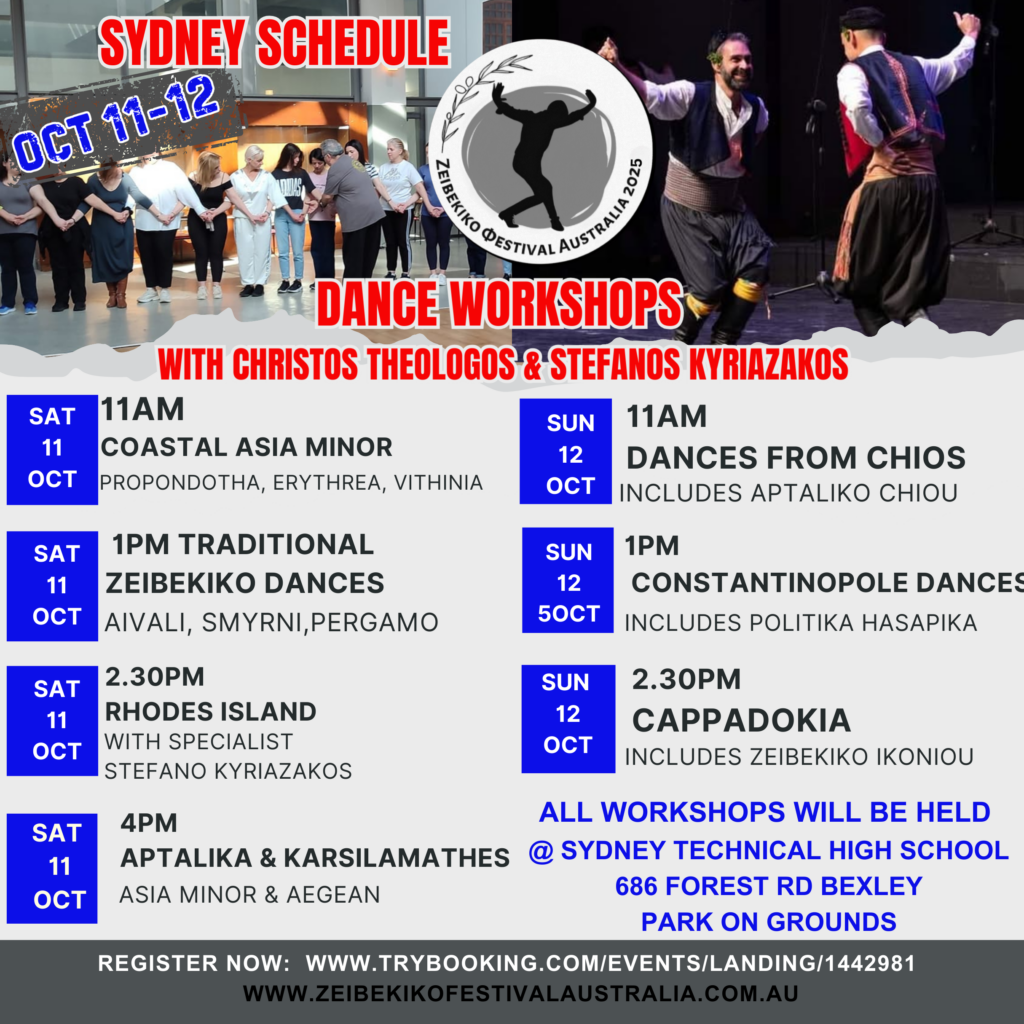
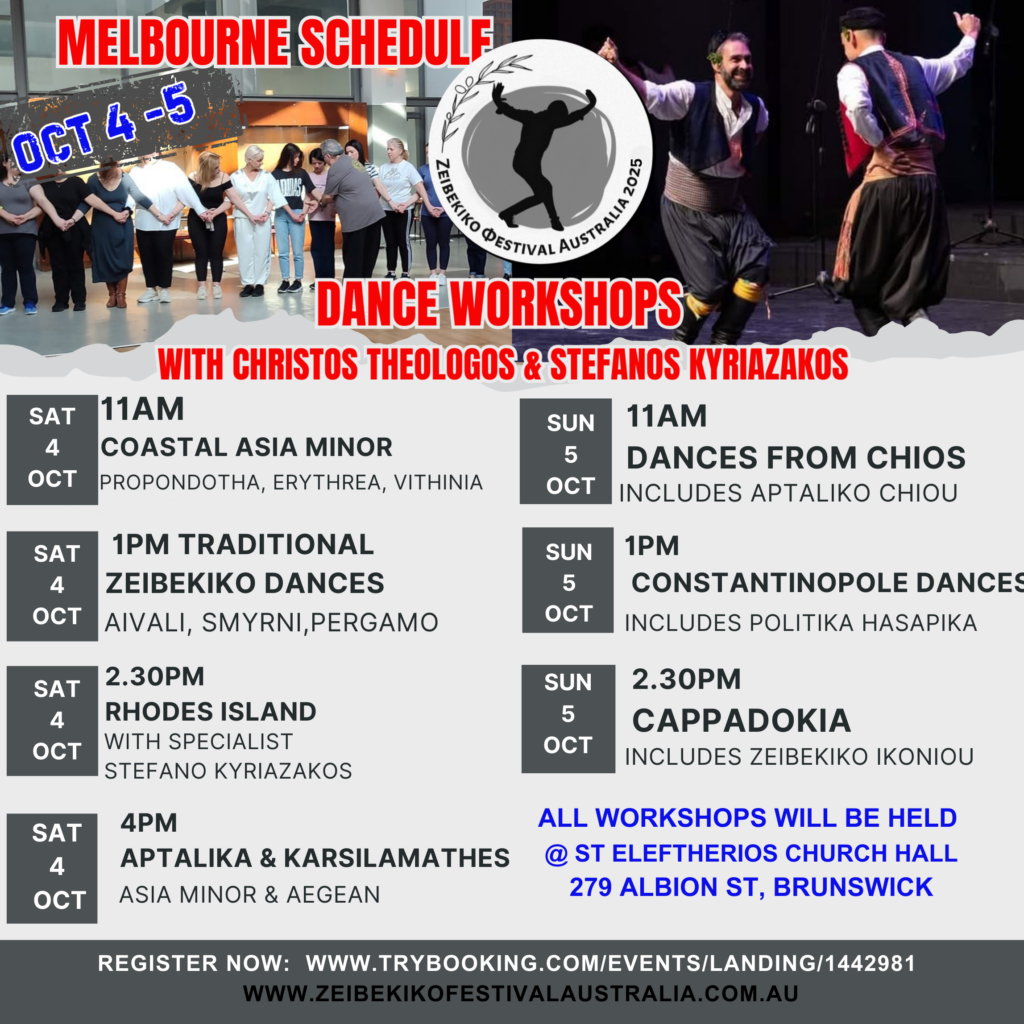
Dr Theologos holds a PhD in Folklore, has lectured at the University of the Aegean, is Principal of the Music School of Rhodes, and is a member of the Hellenic Folklore Company, which has functioned as a scholarly body since 1908. He is also Director of the Artistic Workshop of Culture.
Through The Greek Herald, he speaks about the purpose of his visit to Australia, stresses how important dance is in order to safeguard elements of Hellenic tradition, while also sending his own resounding message to the Greeks of Australia.
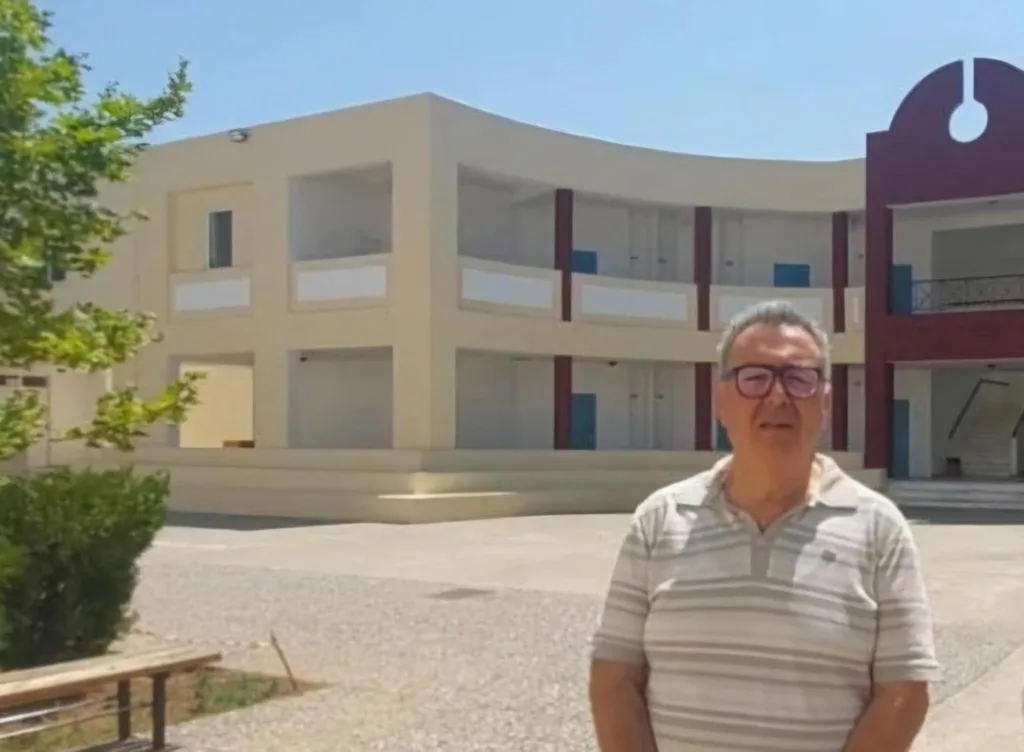
What is the main purpose of your visit to Australia and what do you hope to offer the Greek diaspora with your presence here?
The main purpose of the visit to Australia is to share with the Greek diaspora both the knowledge and the experience that I have acquired over more than 40 years of my involvement with tradition, and in particular with Greek traditional dance. Together we will try to approach the music and dance phenomenon holistically, emphasising that Greek traditional dance, as well as music, does not exist in isolation but is part of a whole in every circumstance.
Music, song and dance in popular culture are not independent but are interwoven with human everyday life, through popular events, rites of passage and customary representations. Approaching the music and dance phenomenon holistically within our popular culture reflects the local culture of each community, not as something static but as something dynamic, within the framework of a traditional community.
Dance as well as music is a communicative medium; it is a kind of linguistic code which contains elements of verbal and non-verbal communication. Every movement, every step of the dancing (music and dance) expresses one or more meanings.
Through workshops, seminars and personal contacts, the aim will be to transmit not only the steps, but also the experiences, the symbols and the memory carried by these dances, with particular emphasis on the zeibekiko as a form of expression, improvisation and personal narration. I hope my presence will function as a bridge between the roots and the contemporary diaspora, rekindling the link with our cultural heritage.
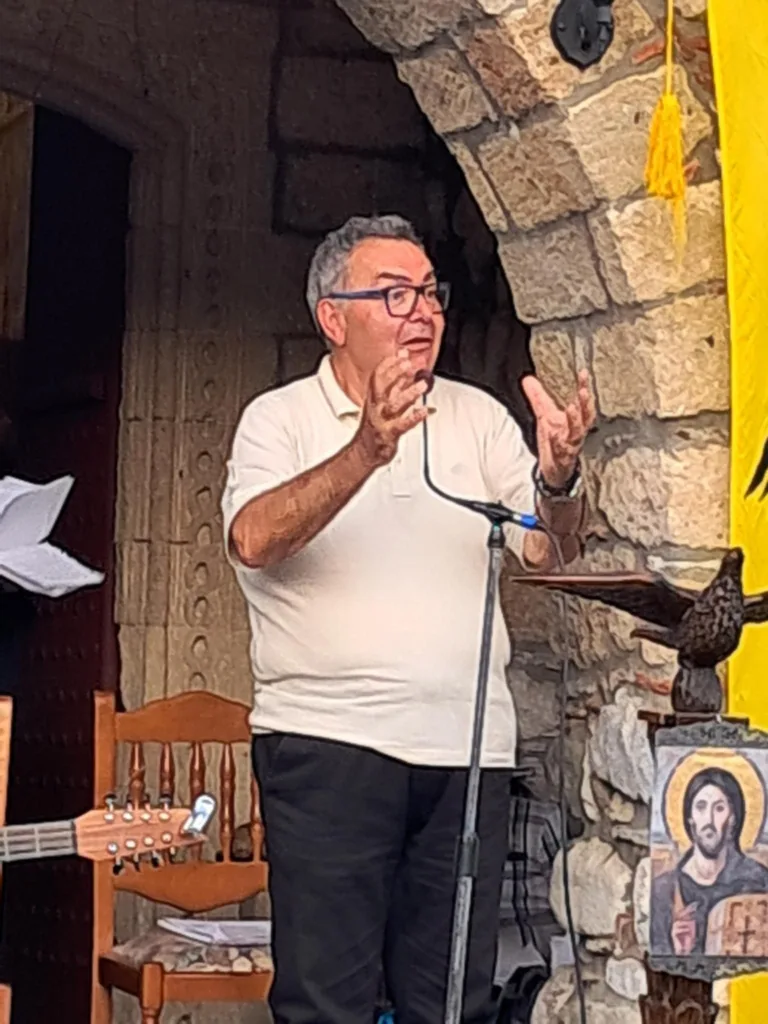
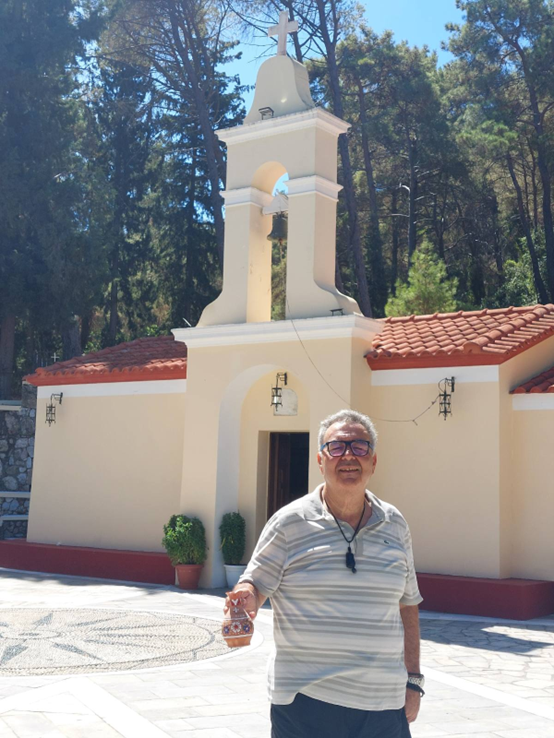
How important do you consider it is for Greeks of the diaspora, and particularly for the younger generations, to know and experience the traditional dances of Asia Minor and our islands?
Traditional dances are not simply artistic or customary events. They are bearers of memory, history and identity. Especially for the descendants of refugees and for the younger generations in the diaspora, the dances of Asia Minor, Cappadocia and the islands of the North-Eastern Aegean function as a kind of intangible thread that connects the past with the present. These are elements of the intangible cultural heritage of Aegean civilisation.
The Aegean in our music and dance tradition never functioned as a border, but as a bridge that connects the islands of the Aegean with Asia Minor. Thus, together we will discover that there are differences in each individual place or village that make each one unique. At the same time, however, through these differences the homogeneity of the Aegean space is also highlighted.
Knowledge of, and experiential contact with, these dances strengthens cultural self-awareness, cultivates collective belonging and gives meaning to the preservation of Greek identity away from the homeland.
Can dance safeguard elements of identity when the distance from the homeland is great?
Absolutely. Dance has the power to function as a cultural imprint even in conditions of geographical or temporal distance. When the Greek of the diaspora rises to dance a karsilamas or a ballos, he does not merely express a musical tradition – he reactivates memories, relationships, symbols, and often a sense of communal continuity. Dance becomes a language of expression which does not require words in order for one to connect with his history and identity.
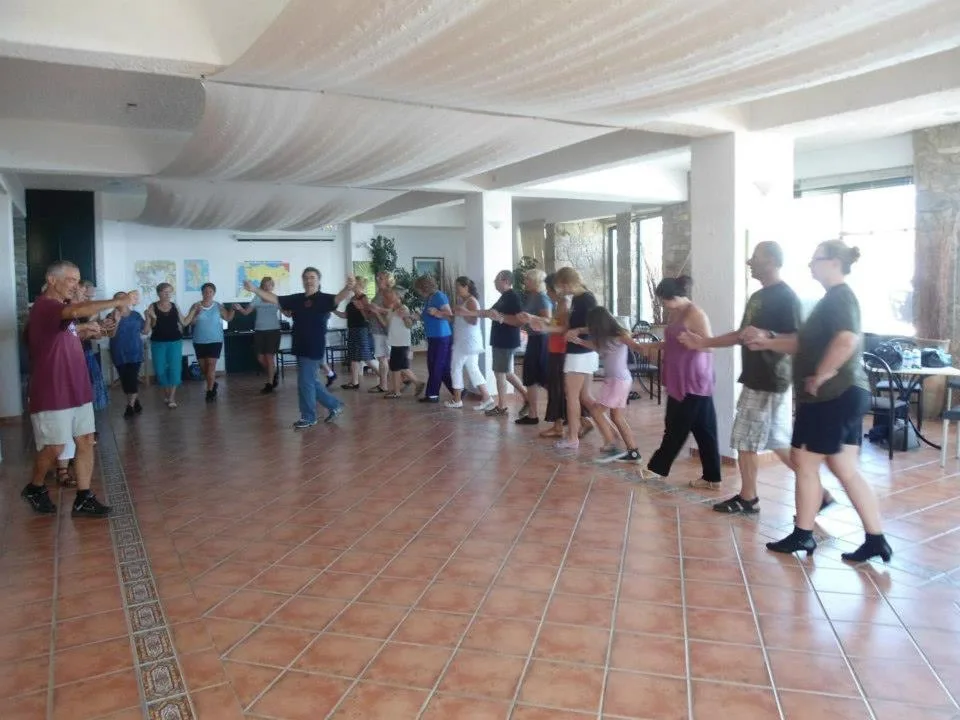
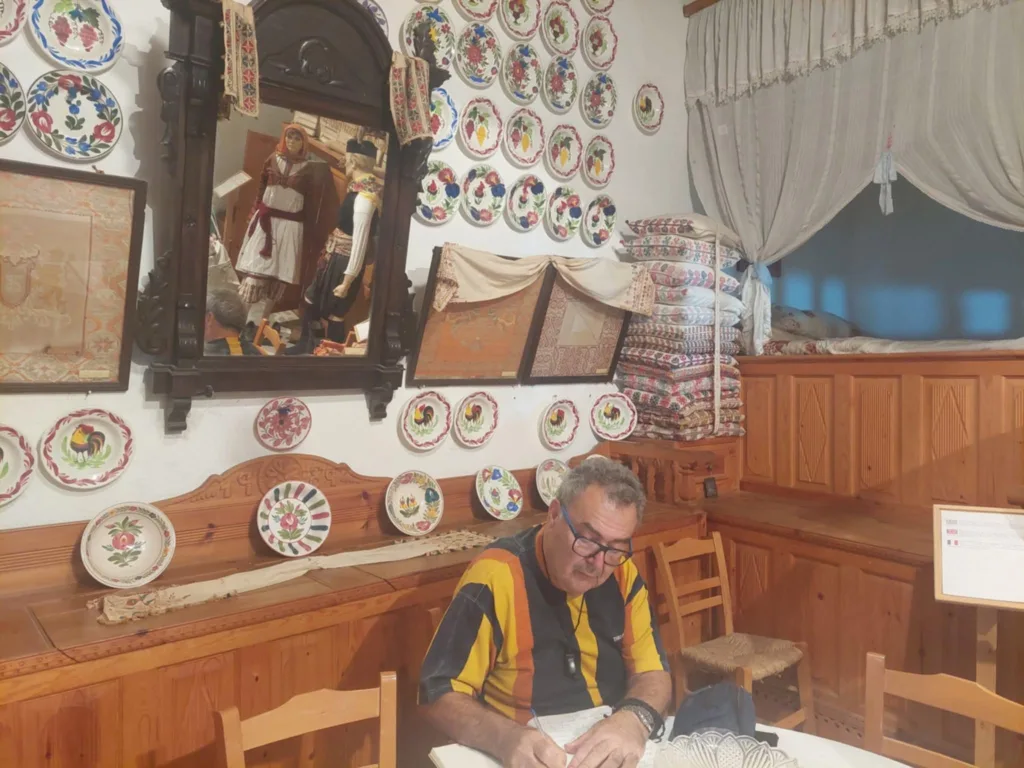
How does the audience abroad react when it discovers the richness and symbolism of Greek traditional dances?
The reaction is always moving. The audience, whether Greeks or people of another origin, is impressed by the authenticity, the emotional intensity and the cultural complexity of Greek dances. Often they feel that they are discovering something they lacked: a way to express their joy, their pain, their history. The dances of refugeehood and of the Aegean, with their small details and strong expressiveness, touch deeply the soul of both the recipient and the dancer. They discover that these expressive means are their own expressive means. That tradition, ultimately, is not a museum piece, a fossil of the past. It is a living element of the past in the present, which with their own contribution will be fertilised for the future, for the new that is being born.”
Is there a difference in the approach of Greeks abroad compared with the audience in Greece?
Yes, there is a difference which has to do mainly with the emotional charge and the degree of attachment to cultural memory. Greeks abroad often see dance as a means of reconnection, while in Greece the relationship may be more everyday or ritual. In the diaspora, every dance seems to be an act of resistance to oblivion; a means of preserving identity. This ‘nostos’, the desire for return – even if symbolic – makes their approach often more conscious and moving.
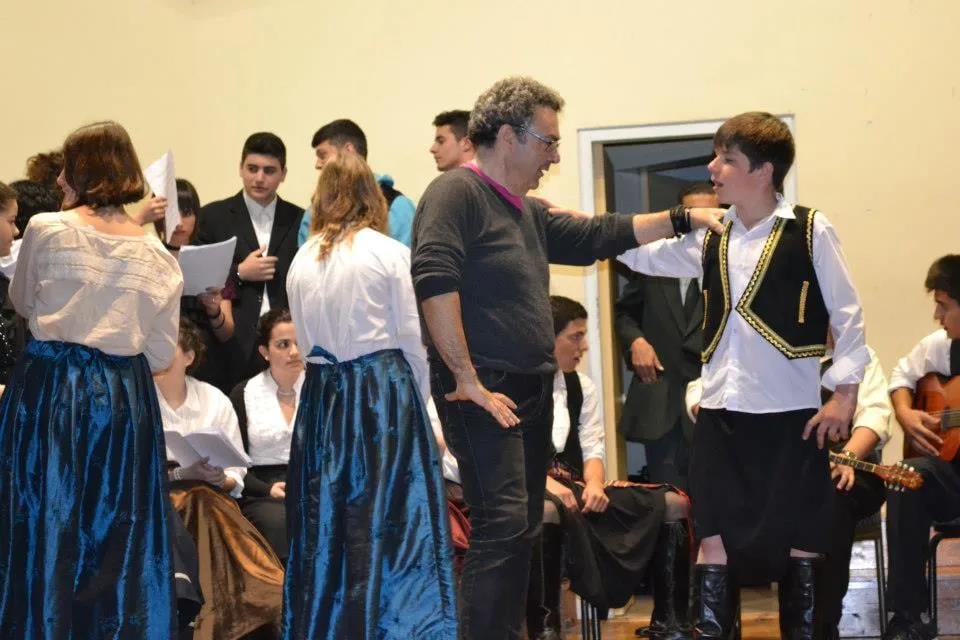
You have dedicated your life to the study and teaching of folklore and dance. What message would you like to leave with the Greeks of Australia through your presence here?
The message that I would like to leave is simple but essential: The Hellenic cultural space exists everywhere. It is the personal and collective responsibility of each individual Greek community, whether in Greece or among the Greeks of the diaspora, to function not only as root and fertiliser, but as the trunk of life in the present. Do not forget to dance. Dance is a way of life, a way of being. It is the means to meet our ancestors and to converse with our descendants. Memory is not something frozen; it is alive when you sing it, play it, dance it. Besides, memory has the power to defeat the decay of flesh. Nothing dies when we keep it alive in our memory and of course do not treat it merely as recollection.
Whether you are in Nea Filadelfeia, in Rhodes, in Chios, in Sydney, or in Melbourne, dance can keep you bound to your roots and offer you joy, community and inner strength.
For the full program of events and to book tickets, visit https://www.trybooking.com/eventlist/zeibekiko. The Greek Herald are proud media partners for this event.
Follow the Zeibekiko Festival Australia:
- Instagram: @zeibekiko_festival_australia
- Facebook: https://www.facebook.com/ZeibekikoFestivalAustralia/
- Website: www.zeibekikofestivalaustralia.com.au
